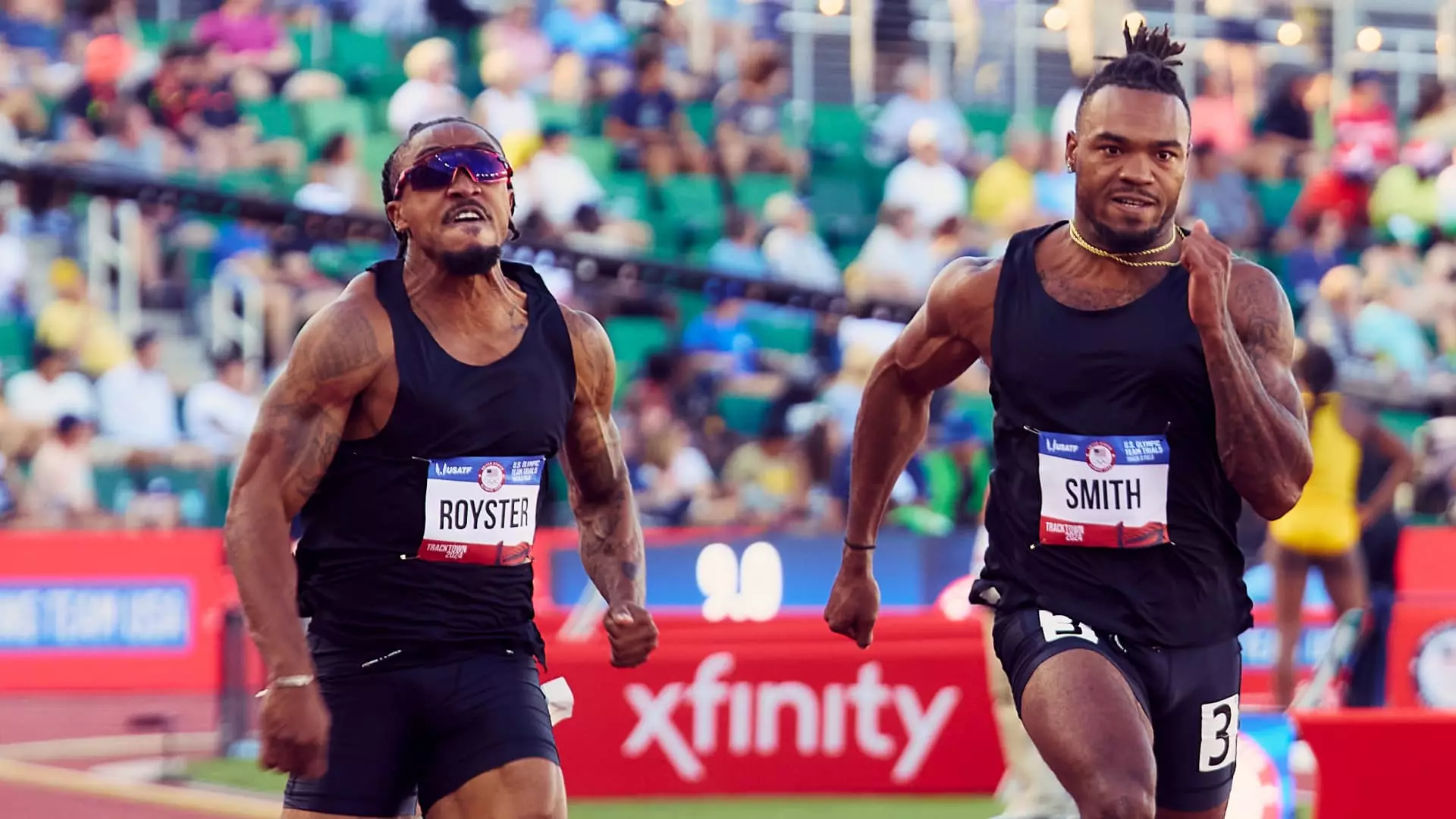The U.S. Track & Field Olympic Trials have seen a new wave of athletes grabbing attention this year – the unsponsored ones. Clad in all-black, logo-less gear, these 35 athletes are part of Bandit Running’s Unsponsored Project. This initiative aims to challenge the traditional sponsorship model for professional athletes, providing support to up-and-coming competitors in the world of track and field. Typically, unsponsored athletes would have to purchase their own apparel from major brands, effectively giving these companies free advertising. However, Bandit Running offers a different approach by providing Olympic hopefuls with all-black kits, warmups, and short-term endorsement deals.
Bandit Running’s co-founder, Tim West, stated that the company is offering at least 35 two-week deals for unsponsored runners at the trials. These deals include unbranded apparel, a platform, and cash to cover expenses. West emphasized the importance of a new sponsorship model where brands allocate a portion of their budget to support amateur and sub-elite athletes, thereby contributing to the growth of the sport. The Unsponsored Project by Bandit Running offers a unique opportunity for brands to invest in athletes who are often overlooked in the traditional sponsorship landscape.
The release clause in Bandit Running’s deals allows athletes to transition seamlessly to a traditional sponsorship if such an opportunity arises during the trials. With the high costs associated with training and competing, unsponsored athletes like Courtney Okolo, a 400-meter runner and a former Nike-sponsored athlete, find the support provided by Bandit Running invaluable. The all-black, logo-free kits not only set these athletes apart but also indicate their availability for long-term sponsorship deals. Okolo expressed how challenging it is to compete without a sponsorship and highlighted the financial burden that comes with training, traveling, and competing in elite competitions.
Brandee Johnson, a 26-year-old unsponsored track athlete who qualified for the Olympic trials, shared her journey of working multiple jobs while pursuing her Olympic dreams. Johnson’s participation in the Unsponsored Project symbolizes her resilience and determination to succeed in a sport that demands financial sacrifices. By aligning herself with a project that makes a positive impact on people’s lives, Johnson finds the support she needs to navigate the demanding world of elite track and field competition. This alternative avenue to achieving her goal gives Johnson a sense of comfort and assurance that she has the necessary resources to thrive in a competitive environment.
The Unsponsored Project at the U.S. Track & Field Olympic Trials offers a fresh perspective on athlete sponsorship, highlighting the struggles and triumphs of unsponsored athletes in their quest for success. Bandit Running’s initiative not only challenges the standard sponsorship model but also provides essential support to up-and-coming competitors who are often overlooked in the world of professional sports. By investing in these athletes and offering them a platform to showcase their talents, the Unsponsored Project is paving the way for a more inclusive and supportive sponsorship landscape in track and field.

Leave a Reply